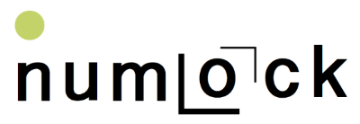Numlock News: August 31, 2018
 By Walt Hickey
By Walt Hickey
In celebration of Labor Day I am taking off on Monday. The next weekday newsletter will show up on Tuesday. But don’t fret: paid subscribers still get a brand new edition of Numlock Sunday, and free subscribers should keep an eye out for a one-weekend-only peek at what they’ve been missing. Enjoy the holiday, and thanks for reading!
 Raccoons
Raccoons
The centuries-old clash between two civilizations has entered a bold new era, with new technologies and innovations fueling the war between Toronto residents and the raccoons they don’t want eating their garbage. The latest weapon in mankind’s arsenal: a new garbage can designed to thwart the scavengers, the result of a $31 million (CAD) city contract that provided a half million “raccoon-proof” smart bins for the besieged Torontonians. The reaction? The raccoons are learning. They are also not losing weight. The city maintains there were only 24 raccoon-related complaints since the shift, but striking video evidence shows new skillful and cunning raccoon counterattacks, meaning incidents were likely under-reported. I would see a movie about Canadians accidentally breeding hyper-intelligent raccoons that supplant us Planet of the Apes style, but I would insist for the sake of irony we film it in New York City pretending to imitate Toronto.
 A Hole In A Space Station
A Hole In A Space Station
NASA and Russian space officials are working on a fix to a 2 millimeter hole that appeared in the International Space Station. Small micrometeorites are a consistent threat to space stations and satellites. Right now, the combined ingenuity and expertise of the two most storied aerospace programs in the history of the species have elected to tape the hole over. There are six astronauts aboard the ISS.
Marcia Dunn, The Associated Press
Boards
The California Assembly passed a bill 41-21 that would require companies based in the state to have at least one woman on their board by the end of 2019. Companies with a board of five or more directors would need at least two or three women on the board by 2021. The bill is expected to pass the Senate and would move on to the desk of Gov. Jerry Brown, who has not publicly indicated a position. Sponsors of the bill cite the statistic that a fourth of publicly traded California companies don’t have any women on their board. On the Russell 3000 Index, 485 of the 3000 companies don’t have any women on their board, 86 of which are based in California.
Vanessa Fuhrmans and Alejandro Lazo, The Wall Street Journal
 Pigeon Racers
Pigeon Racers
Two Chinese pigeon racers were given suspended sentences after cheating in a race to win the equivalent of $147,000 in prize money. Pigeon racing is a huge sport in China, meaning their perfidy was particularly distressing for fans. Instead of having their birds actually fly the 750 kilometers from Shangqiu to Shanghai, the pair stuffed the pigeons in milk cartons and loaded them on to a bullet train to the finish line. That netted them a 1 million yuan prize.
Paid Leave
Microsoft will require companies that provide its contract labor to offer 12 weeks of paid time off (up to $1,000 per week) in parental leave. The requirement will be phased into effect among its subcontractors over the next 12 months. Only 13 percent of the private sector workforce in the U.S. gets paid parental leave.
 Playoff College Football
Playoff College Football
While the College Football shift to a playoff format has undeniably made the conclusion to the season way more exciting, it has actually also had the side effect of making the game just a little more predictable and making it harder for teams that are low-ranked to break into the top. Prior to the playoff, about 53 percent of teams ranked in the preseason AP top five go on to finish in playoff position. Since the playoff was introduced, 63 percent of those preseason top five teams made the playoff. This means the playoff is a privilege enjoyed by an increasingly exclusive club of schools, despite the democratic motivations behind its design.
Ferry Riders
Despite losing about $6.60 every single ride and 94 percent of residents not even having easy access to the ferries, New York City officials are still pushing them as a plausible future for transit. This is largely because the state, not the city, both controls and has overseen the fundamental deterioration of all the bridges and tunnels in town. We’re pretty much running out of ways to cross the East River at this point barring some CitiBike-but-Jet-Ski Hail Mary. The city says about 3 million passengers took the ferry in 2017, which for context the underfunded bus system serves 2 million people a day at peak.
Benjamin Kabak, Curbed New York
Previous Sunday special editions: Mattress Troubles · Conspiracy Theorists · Beaches · Bubbles · NYC Trash · Fish Wars · Women’s Jeans · Video Stores
Send links to me on Twitter at @WaltHickey or email me with numbers, tips, or feedback at walt@numlock.news.

